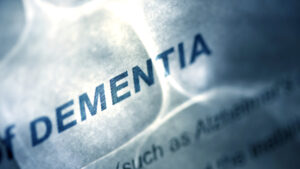
Maintaining a balanced and nutritious diet is essential for overall health and well-being, particularly for individuals with dementia and Alzheimer’s disease. Proper nutrition can help manage symptoms, slow cognitive decline, and improve the quality of life for those affected. In this article, we will explore the role of nutrition in dementia and Alzheimer’s care and offer some dietary tips to support brain health.
1. The Importance of a Balanced Diet
A well-rounded diet is crucial for individuals with dementia and Alzheimer’s, as it provides essential nutrients needed to support brain function and overall health. A balanced diet should include:
- A variety of fruits and vegetables
- Whole grains
- Lean proteins
- Low-fat dairy products
- Healthy fats, such as those found in nuts, seeds, and fish
2. The Mediterranean and MIND Diets
Research has shown that certain dietary patterns, such as the Mediterranean and MIND diets, can have a positive impact on brain health and potentially reduce the risk of dementia and Alzheimer’s disease. These diets emphasize:
- Consuming plant-based foods, such as fruits, vegetables, and whole grains
- Including healthy fats, such as olive oil and nuts
- Eating moderate amounts of fish, poultry, and dairy products
- Limiting red meat, processed foods, and added sugars
3. The Role of Antioxidants
Antioxidants play a crucial role in protecting the brain from oxidative stress and inflammation, which are thought to contribute to the development of dementia and Alzheimer’s. Foods rich in antioxidants include:
- Berries
- Leafy green vegetables
- Nuts and seeds
- Dark chocolate
- Green tea
4. Hydration
Proper hydration is essential for overall health and cognitive function. Dehydration can exacerbate dementia symptoms and increase the risk of confusion, falls, and urinary tract infections. Encourage individuals with dementia and Alzheimer’s to drink water regularly and offer beverages such as herbal tea or water infused with fruits for added variety.
5. Addressing Eating Difficulties
Individuals with dementia and Alzheimer’s may experience eating difficulties due to changes in taste, appetite, and the ability to chew and swallow. To address these challenges, caregivers can:
- Offer nutrient-dense, easy-to-eat foods, such as smoothies, soups, and purees
- Encourage regular mealtimes and create a calm, distraction-free eating environment
- Use adaptive utensils and dishes to support independence during mealtimes
- Monitor weight and consult with healthcare providers to address any concerns
By prioritizing proper nutrition and addressing eating challenges, caregivers can help support the health and well-being of individuals with dementia and Alzheimer’s. A balanced diet, along with regular exercise and cognitive stimulation, can contribute to maintaining brain health and improving overall quality of life. Ready to find the perfect assisted living community for your loved one? Let our expert team at Valley Senior Advisors guide you through the process. Contact us today for personalized support and a seamless transition to their new home.





